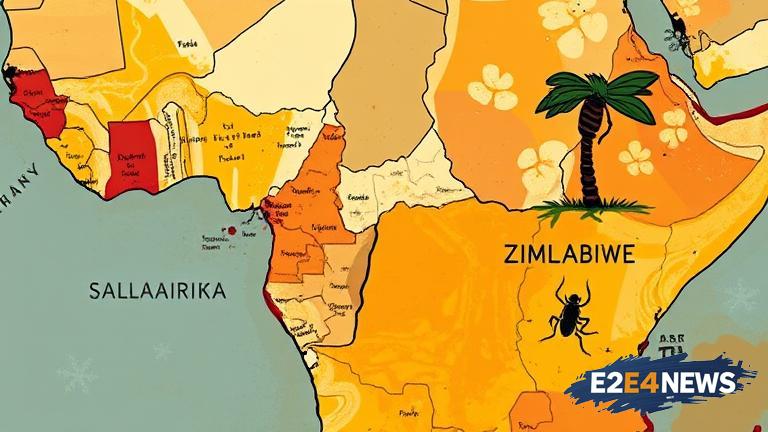A recent surge in malaria cases has been reported in Southern Africa, with Zimbabwe being the worst affected. The outbreak has been attributed to heavy rainfall and flooding in the region, which has created an ideal breeding ground for mosquitoes. According to reports, the number of malaria cases in Zimbabwe has increased significantly, with many hospitals and clinics struggling to cope with the influx of patients. The government has been working to distribute insecticide-treated bed nets and spray insecticides in affected areas, but more needs to be done to bring the outbreak under control. Malaria is a serious and sometimes life-threatening disease, and it is essential that people take precautions to prevent infection. The outbreak has also had a significant impact on the economy, with many businesses and schools forced to close due to the high number of cases. The Zimbabwean government has appealed for international assistance to help combat the outbreak, and several organizations have responded with donations of medical supplies and equipment. Despite these efforts, the situation remains critical, and it is likely that the number of cases will continue to rise in the coming weeks. The outbreak has also highlighted the need for improved healthcare infrastructure in the region, as well as better preparedness and response mechanisms for dealing with public health emergencies. In addition to Zimbabwe, other countries in the region, including Mozambique and Malawi, have also reported an increase in malaria cases. The World Health Organization (WHO) has warned that the outbreak has the potential to spread to other parts of the continent, and has called for increased vigilance and cooperation between countries to prevent this from happening. The WHO has also provided technical assistance and support to affected countries, including the provision of medical supplies and equipment. The outbreak has also had a significant impact on the region’s agricultural sector, with many farmers forced to abandon their crops due to the high number of cases. The economic impact of the outbreak is likely to be felt for many months to come, and it is essential that governments and international organizations work together to provide support to affected communities. In conclusion, the malaria outbreak in Southern Africa, particularly in Zimbabwe, is a serious public health emergency that requires immediate attention and action. It is essential that governments, international organizations, and individuals work together to prevent the spread of the disease and provide support to affected communities.
